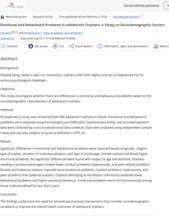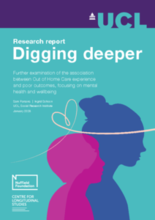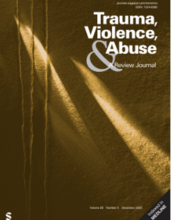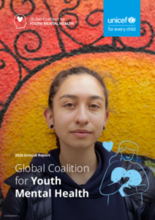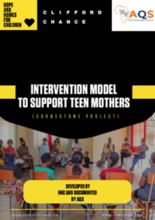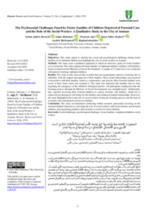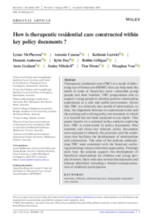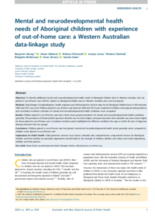Displaying 1 - 10 of 526
This study examined differences in emotional and behavioural problems among 400 adolescent orphans in Kerala, India using the Strengths and Difficulties Questionnaire to assess how sociodemographic factors shape mental health outcomes. The findings revealed significant variations by gender, religion, type of orphanhood, length and type of institutional care, underscoring the need for tailored psychosocial interventions that reflect these differences.
This report builds on previous research highlighting the multiple challenges facing children of mothers with out-of-home care (OHC) experience in the UK. It draws on data from young people born in 2000 who are part of the UK Millennium Cohort Study (MCS) to deepen understanding of the association between maternal OHC experience and poor behavioural and mental health outcomes.
This systematic review and meta-analysis assessed the effectiveness of psychosocial interventions for families with young children involved in child protection services. While the interventions improved parenting sensitivity, attachment, and parental functioning, evidence for reducing maltreatment risk remains limited, highlighting the need for larger, more consistent studies.
This study explores the experiences of exploited orphans in institutional care in India and the factors that contribute to their cognitive resilience, using qualitative interviews with 20 children aged 12–16. Findings show that resilience is shaped by problem-solving skills, goal setting, self-regulation, peer support, education, and stable caregiving, highlighting the need for policies and interventions that strengthen both individual and environmental supports.
This study explores the experiences and challenges of caregivers providing trauma-informed care to foster children in a South African care facility. Findings highlight the emotional and practical difficulties faced by caregivers and emphasize the need for targeted training and support to strengthen their capacity and well-being.
The 2024 Annual Report of the Global Coalition for Youth Mental Health highlights the Coalition’s expanding efforts to address the global mental health needs of children, youth, and caregivers.
The Teenage Mother project is an intervention model to support teen mothers, developed by Hope and Homes for Children (HHC) in Rwanda. The documents provides an in-depth analysis of the challenges faced by teen mothers, the prioritization of causal factors, and the implementation of the Active Family Support (AFS) model to address these challenges.
This study aimed to identify the social and psychological challenges facing foster families of orphaned children and highlight the role of social workers in Amman.
This paper reports on a national policy analysis in Australia exploring how therapeutic residential care (TRC) is constructed in policy documents. One hundred and thirty-two relevant policy documents were analysed to identify the practices and the conditions that facilitate the development of relationships and connections.
The objective of this study was to identify additional mental and neurodevelopmental health needs of Aboriginal children born in Western Australia, who are placed in out-of-home care (OOHC), relative to Aboriginal children born in Western Australia who were not placed.

